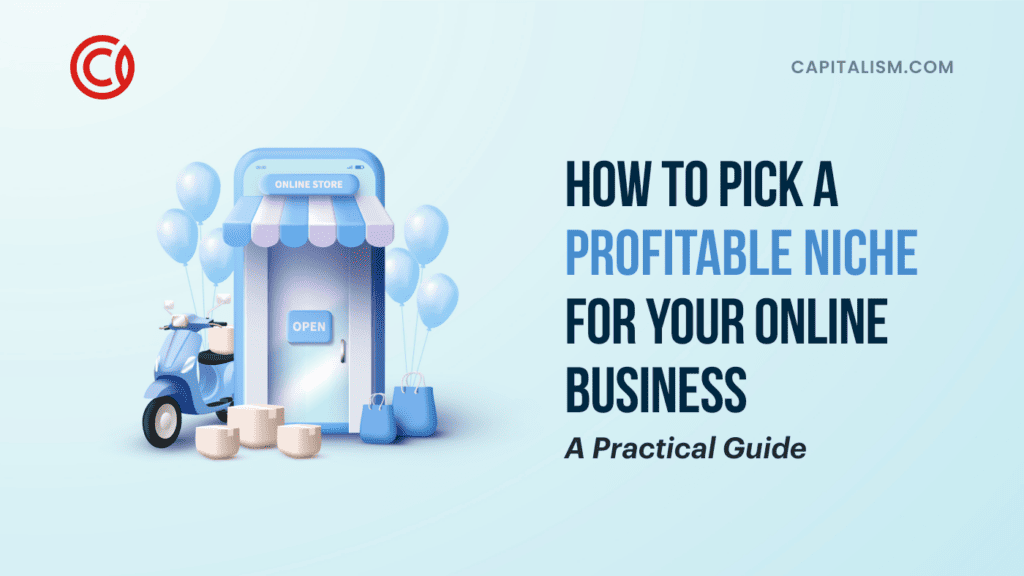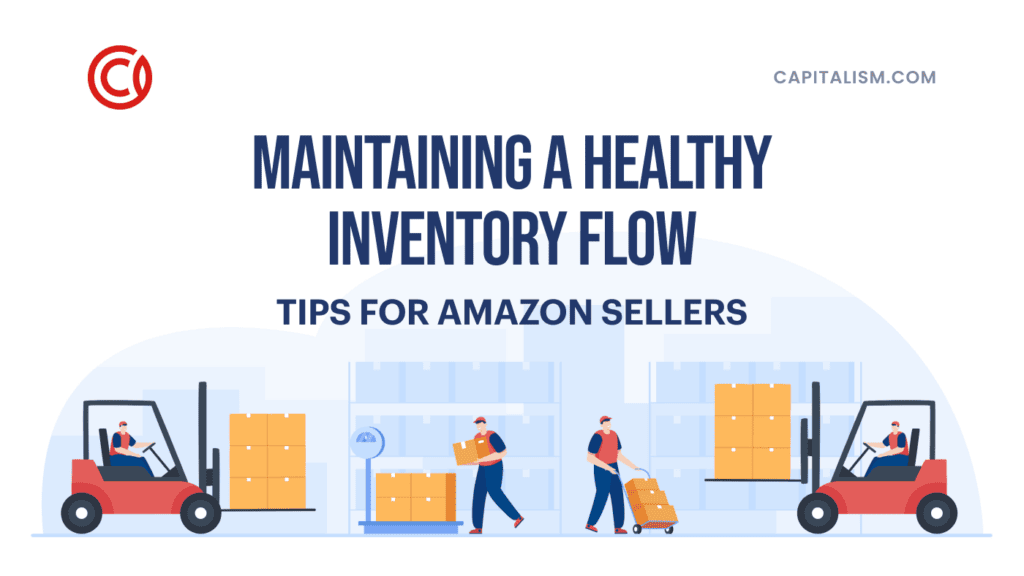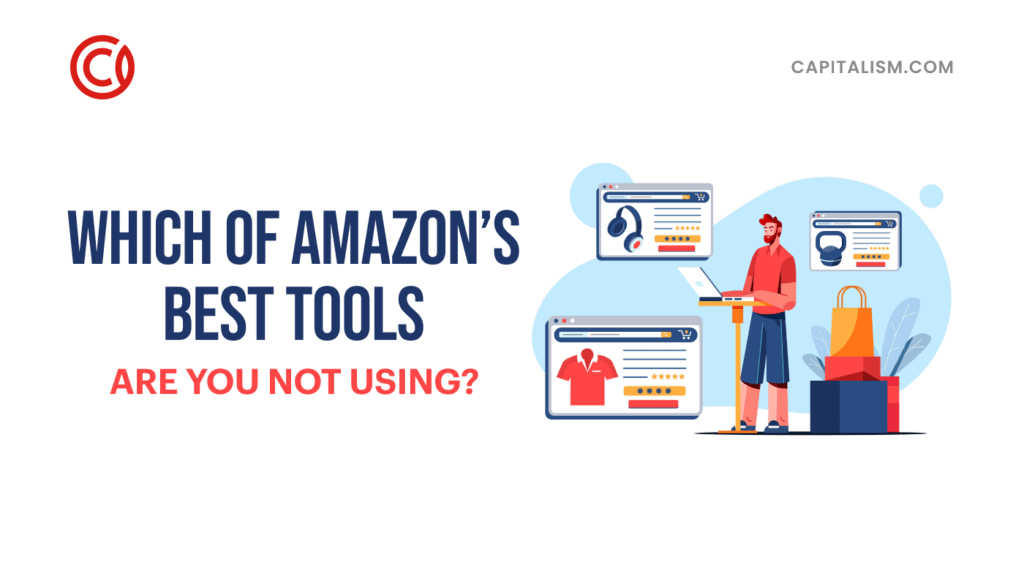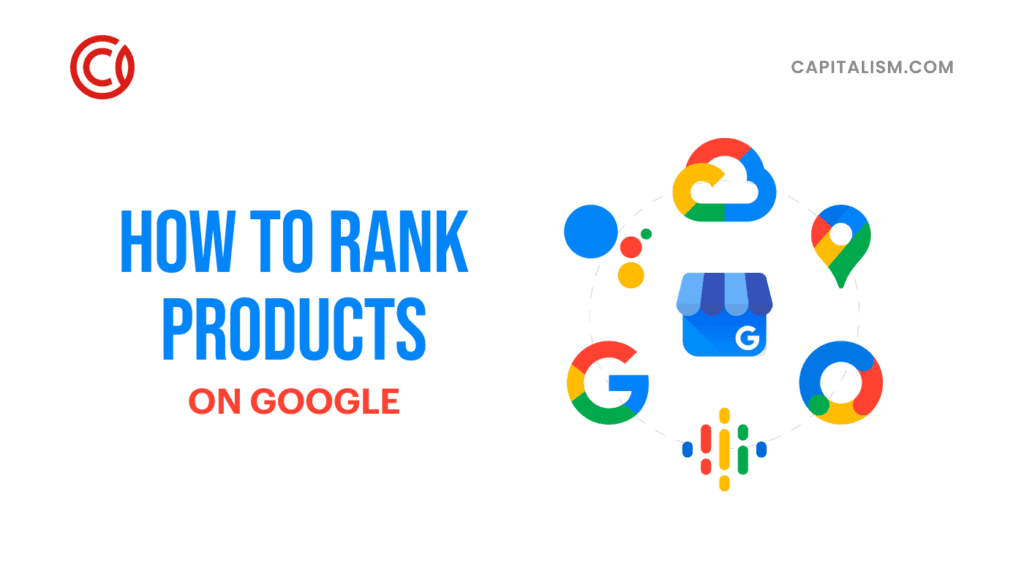Picture this: after years of dabbling in affiliate marketing, you decide to create your first product. You're hooked on the law of attraction and decide to sell a mindset product. You lock yourself away for three days, pouring over books and moulding their best ideas into your unique product.
After intense days and sleepless nights, you have a polished e-book, a sleek website, and a solid sales page. You even create a lead magnet—a free chapter of your book—to capture email addresses. And voila, you're open for business!
After two months, you've given away 122 free chapters but sold only two copies of your book. Despite tweaking your lead magnet and sales page, nothing improves. You consult a friend who points out the glaring issue: your product isn't something people want to buy.
Yes, that's my story, and yes, it was a tough pill to swallow. The school of hard knocks gave me a PhD in selling something people didn't want, but it was a valuable lesson. That's when I understood the importance of profitable niche selection, and that's what I want to share with you today
The Profitable Niche Selection Conundrum
Starting a business can be quite the challenge. Especially when it comes to choosing your niche. This is a common stumbling block for many entrepreneurs, including myself. Your niche has a significant impact on all aspects of your business. It serves the foundation for your entire venture.
It’s like dating. You don't want to settle for the first niche that winks at you. The most profitable niches aren't always the most apparent ones, and vice versa.
Choose the wrong niche, and you risk wasting time, money, and resources on a product or service that no one wants, like I did with my first book.
And this is not an isolated issue, in fact, according to a CB Insights report, 42% of startups fail because there's no market need for their products.
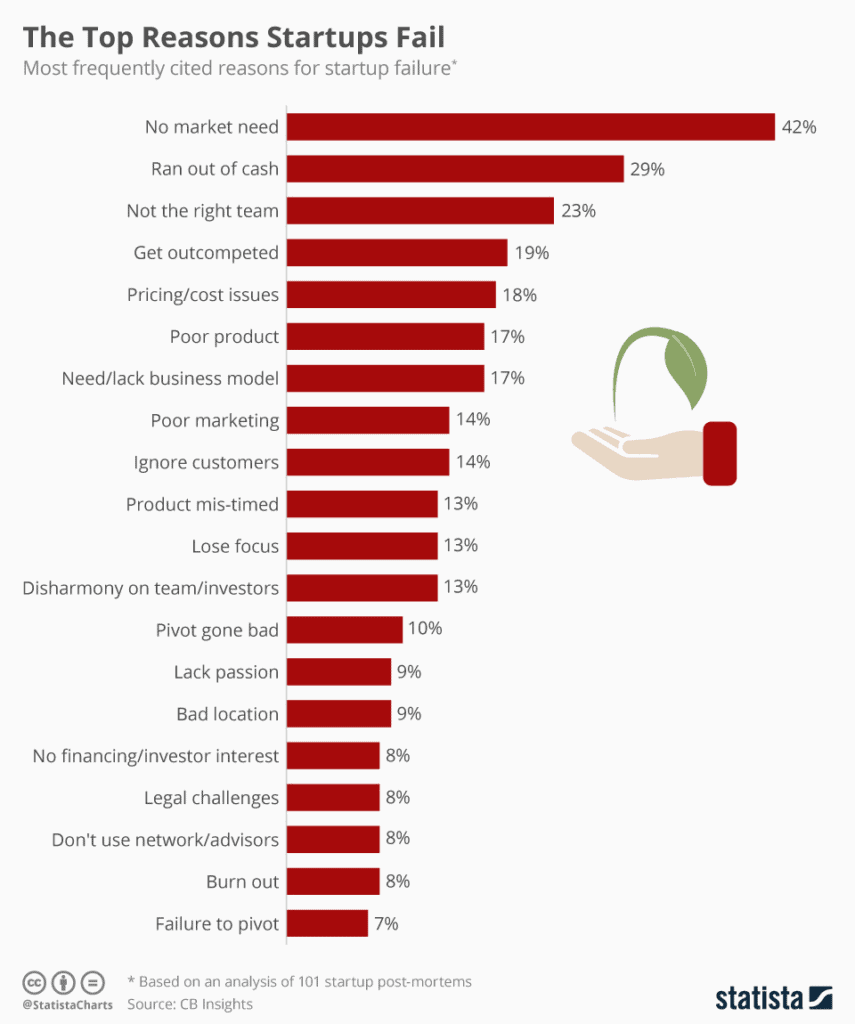
Common Misconceptions About Profitable Niche Selection
The world of internet marketing is fraught with misconceptions, and niche selection is no exception.
The Fear Of Competition
Too Many beginners believe that a niche with little competition is their ticket to easy success. Unfortunately, this philosophy often backfires.
Competition is not necessarily a bad thing; on the contrary, it's often a good indicator that there's money to be made in a particular niche. If a niche appears to have little to no competition, it usually signifies that the niche is too narrow or perhaps even non-existent to generate significant profits.
Long-Term Potential Over Trendy Hype
When you're choosing your niche, it's crucial to look beyond the current popularity of a topic. It's the long-term potential that matters, not its current trending status. For instance, artificial intelligence isn't a passing trend. It's a market that will continue to grow and evolve, offering many opportunities.
According to a report published last month by Fortune Business Insights, the global artificial intelligence market size was valued at $428.00 billion in 2022 & is projected to grow from $515.31 billion in 2023 to $2,025.12 billion by 2030.

Where To Start Your Niche Selection Journey? The Evergreen Markets
Certain markets are known as "evergreen markets," like health, wealth, and relationships. These are areas of human life that are perpetually relevant—there's always a demand for products and services in these niches. They continuously generate income and will likely remain relevant for years to come.
They're called 'evergreen' for a reason. Just like evergreen trees that keep their leaves all year round, these markets continue to thrive regardless of trends.
The Allied Market Research projects that the global health and wellness market will reach a staggering $12.24 trillion by 2031. This underlines the continuous growth and potential of evergreen markets.
Next: Finding The Goldilocks Zone
Something that a lot of people get wrong here is they either go too broad from the outset or too specific. My advice? Look for the Goldilocks Zone. The Goldilocks Zone is a market large enough to be profitable but niche enough to have limited competition. It's not too hot, not too cold. It’s just right.
Let me give you an example. When the global pandemic hit in 2020, many gyms and fitness centres had to close, leading to a surge in demand for home workout equipment.
Sports retailer Decathlon reported a 431% spike in sales of resistance training equipment in 2021.
Suddenly, this niche found itself in the Goldilocks zone. It was not too broad, like the general fitness equipment market, nor was it too narrow, like the market for, say, pink 2-pound dumbbells. It was just right.
This niche has a large enough customer base, people looking to maintain their fitness routines from home. It's also specific enough to avoid direct competition with big-box retailers who sell all types of fitness equipment. It offers a vast range of products, which opens up the possibility for a diverse product line and multiple income streams.
So, that's the kind of niche you want to go for. It has the right size, with high demand, good product diversity, and a passionate customer base. This is what leads to significant potential profitability.
Evaluating Market Potential
Let's say you found your sweet spot. A market that's just right the size, and looks like a great fit. Does that mean it's a profitable one? Well, not exactly!
In that case, how do you know if a market is profitable?
A sound approach is to create a checklist or criteria for evaluating market potential. Existing and active markets, whether on platforms like Google, Facebook, or through solo ad lists, are always considered good markets. These markets already have engaged customers and ongoing demand, making them profitable choices for business ventures.
Don't hesitate to invest in market research. Making informed decisions about your niche can make all the difference to your venture's success rate.
To give you an example, let's say you're passionate about sustainable living:
- With a quick glance at Google Trends, you'll see that interest in eco-friendly products has grown exponentially in the last five years.
- A check on Amazon's Best Sellers in Home & Kitchen will show several sustainable items there too.
- Shopify's Commerce Trends of 2023 report indicates that nearly six in 10 consumers surveyed are willing to change their shopping habits to reduce environmental impact.
Now, you're onto something!
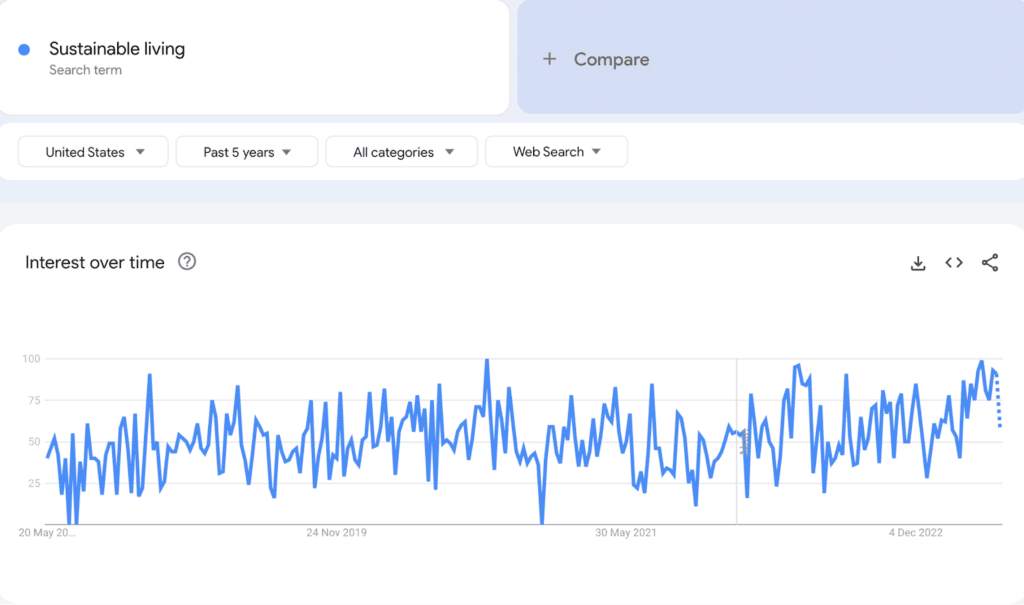
The Power of Emotion in Niche Selection
An often overlooked yet highly potent factor in niche selection is the emotional connection. Tapping into niches with passionate and emotionally-driven consumers can be incredibly lucrative.
For instance, people who are into sailing spend all their free time sailing or thinking about it. The same goes for those into golf, fishing, and other hobbies. This emotional investment leads to consistent, ongoing demand within these niches.
A Harvard Business Review study found that emotionally connected customers: buy more of your products, visit your website more often, exhibit less price sensitivity, and even recommend your products more than customers who are simply satisfied.
Let's go back to the example of the home equipment niche. Does it pass the emotionality test?
It sure does! It's a niche geared toward a highly passionate and motivated demographic. People committed to fitness will spend money on workout equipment, even when the gym isn't an option.
Unconventional Markets
In the quest for a profitable niche, you might come across unconventional markets, such as the Law of Attraction or the astrology market. Despite seeming unusual, these markets can indeed house dedicated consumers willing to invest.
The key is understanding the consumer psychology that drives these niches, and providing high-value products that meet their unique needs and interests.
Niche Depth: A Concept Worth Exploring
Another often-overlooked aspect of niche selection is the concept of niche depth. Many marketers believe they can establish a business by selling a product to a customer base and stop there.
Yet, successful marketers often either tap into several niches at once, at a shallow level. Or delve deeper into one niche, creating more products and services within that particular market.
Niche depth is essentially about understanding whether your chosen niche has room to grow and expand.
Think about it this way: in any profitable niche, there should be the opportunity for you to offer more products, more services, more solutions. This depth allows you to diversify your offerings. It also helps you create a more comprehensive brand image, fostering stronger customer loyalty.
A Final Word of Caution
Remember, niche hopping or jumping from one niche to another without exploring its depth is a strategy that rarely works. It results in you constantly starting from scratch, without building a foundation that could potentially bear more fruits.
The Guide: Practical Tips for Niche Selection
Having covered the theory, let's get down to the nitty-gritty. Here are some practical tips to help you in your profitable niche selection journey.
1. Identify your interests and passions.
Firstly, jot down a list of your personal interests and passions. This can act as a starting point for your niche selection. Remember, running a business requires a significant investment of time and effort. So, it's important to choose a niche that you'll enjoy working on.
For example, if you love golfing and everything about it, the golf equipment niche could be a perfect match for you. I'm not saying you have to be absolutely passionate about your niche, you can love other aspects of your business. It helps if you love it, but at least try not to pick a niche you hate, or know nothing about.
2. Research your potential niches.
Once you've identified your passions and interests, it's time to research. Look into the profitability potential, market size, competition level, and niche depth of your potential niches. Tools like Google Trends, SEMRush, and Amazon Best Sellers can provide useful insights here.
For instance, using Google Trends, you can track how the popularity of the golf equipment niche has changed over time, which could indicate potential for growth.

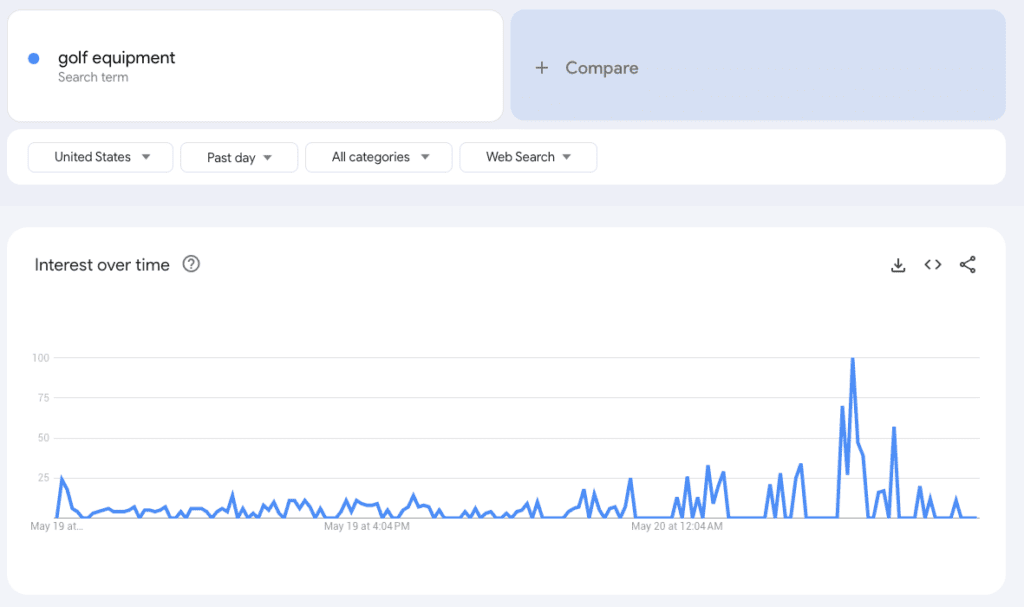
3. Identify problems you can solve.
Next, within your chosen niche, identify potential problems or needs you can address with your product or service. Remember, successful businesses are all about providing solutions to problems.
For example, within the golf equipment niche, a common problem might be that golfers struggle to find quality equipment that suits their skill level. Your business could aim to solve this problem by providing a curated selection of top-notch golf equipment for all skill levels.
4. Understand your audience.
To succeed in your niche, you need to understand your audience. What are their needs, desires, and challenges? What are their demographics and psychographics? Where do they hang out online? The more you know about your audience, the better you can cater to their needs.
For instance, your golf equipment audience might be primarily amateur and professional golfers who frequent golf forums and follow pro golfers on Instagram. The more you know about your audience, the better you can cater to their needs.
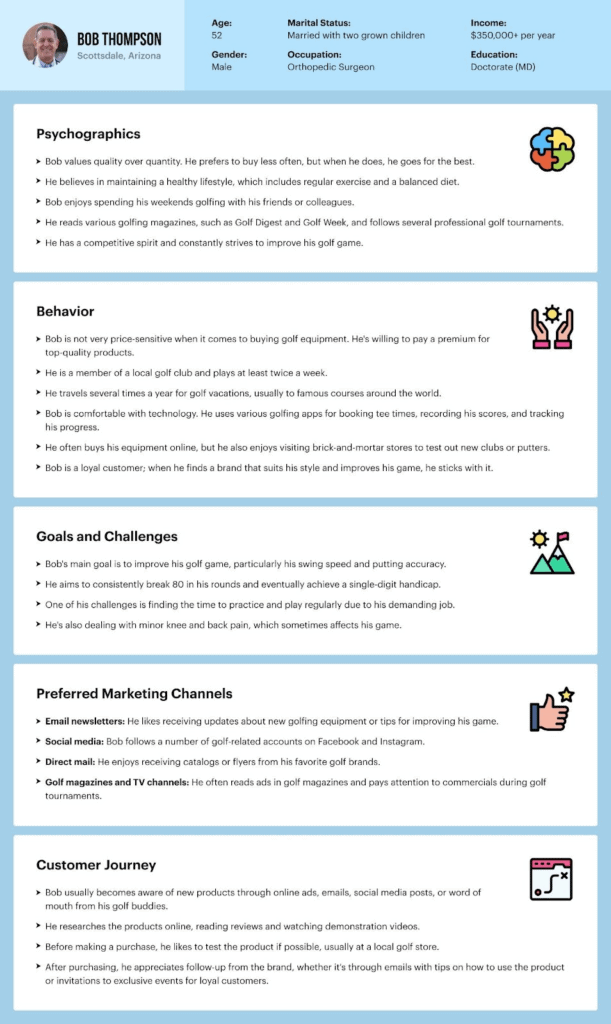
5. Check the competition.
Contrary to popular belief, a certain level of competition is actually a good sign—it means there's demand for your niche. Analyse your competition. What are they doing right? Where can you differentiate and stand out?
Once again, let's take the golf equipment niche example. Perhaps your competitors lack personalised customer service. This could be an area where you differentiate your brand by offering personalised equipment recommendations based on each customer's skill level and style of play.
6. Test your idea.
Finally, before fully committing to your niche, consider running a small campaign to test the waters. This could involve setting up a landing page to collect emails in exchange for a freebie related to your niche.
For instance, you could offer a free golf swing guide in exchange for email signups to gauge interest.
By following these steps, you can confidently choose a profitable niche that aligns with your passions and skills. Remember, it's not about finding a niche without competition; it's about finding a niche you can excel in.
Conclusion
In closing, profitable niche selection can make or break your business venture. While it's essential to follow your passion, don't forget to keep a keen eye on market demand and profitability potential. It's a challenging balance to strike, but with due diligence, you can avoid a costly misstep.
Remember, the right niche is a balance of passion, demand, and profitability. Once you find it, it's like striking gold.
Here's to your success!
We’re delighted to bring you this article from Igor Kheifets, one of our community’s favorite experts on creating a business that makes the world a better place while also making your dream life a reality.
Here at Capitalism.com, we’re on a mission to make one million millionaires by 2028. We’d love YOU to be one of them.
That’s why we’ve created this FREE course that will help you grow your net worth. Join us now and let’s get started!
